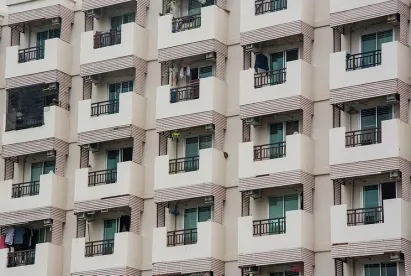There is a faint light at the end of the COVID tunnel for commercial landlords regarding timings and the ability to recover unpaid rent arrears. The UK Government has announced an extension to the current prohibition on forfeiture and winding up petitions, to enable it to introduce new legislation to help manage the £6bn estimated rent arrears.
The announcement provides a clearer pathway for both landlords and tenants, many of whom have paid no, or little rent since March 2020 as a consequence of the various Government imposed lockdowns.
The new legislation intends to “help tenants and landlords work together to come to an agreement on how to handle the money owed – this could be done by waiving some of the total amount or agreeing a longer-term repayment plan”.
To assist landlords and tenants and give time for agreement to be reached the current prohibition on forfeiture and CRAR proceedings is extended until March 2022, and the prohibition on winding up petitions (due to expire at the end of June 2021) will be extended by three months until the end of September 2021.
Landlords may still feel aggrieved that their ability to recover rent and how and when they can do that will be fettered by the new legislation – which appears to require the parties to enter into a binding arbitration process if they cannot reach agreement. And that their usual route to recover unpaid rents, such as forfeiture and winding up will be prohibited. However reaching a solution that enables landlord creditors to recover unpaid rent, giving tenants time to ‘get back on their feet’ and finding a workable solution to repay rent arrears that doesn’t push a company into insolvency, is a very difficult balancing exercise.
No doubt, some landlord and tenants will be pleased to know how they are expected to manage rent arrears and can more accurately plan around the timetable, and pending the new legislation the Government encourages both to “keep working together to reach mutually beneficial agreements”.
However, the measures may not provide a complete solution, particularly for those businesses that are no longer viable as a consequence of the impact of COVID-19, or those that have other historic COVID related debt. No doubt the attitude of HMRC towards recovering unpaid tax will also play an important role.
A key point to note, is that the new legislation will only cover sectors impacted by closures and will not encompass rent debt accumulated before March 2020. For those sectors that fall outside of the legislation, and that have accrued arrears, tenants should aim to have reached agreement with their landlord before the end of September (when the restriction on winding up petitions lift) and have assessed the financial viability of the business to ensure that arrears can be paid.
The devil of course, will be in the detail of the legislation, a draft of which is awaited. Once details are published we will follow this blog up with a closer look at how the legislation will work for both commercial landlords and tenants.



 />i
/>i

